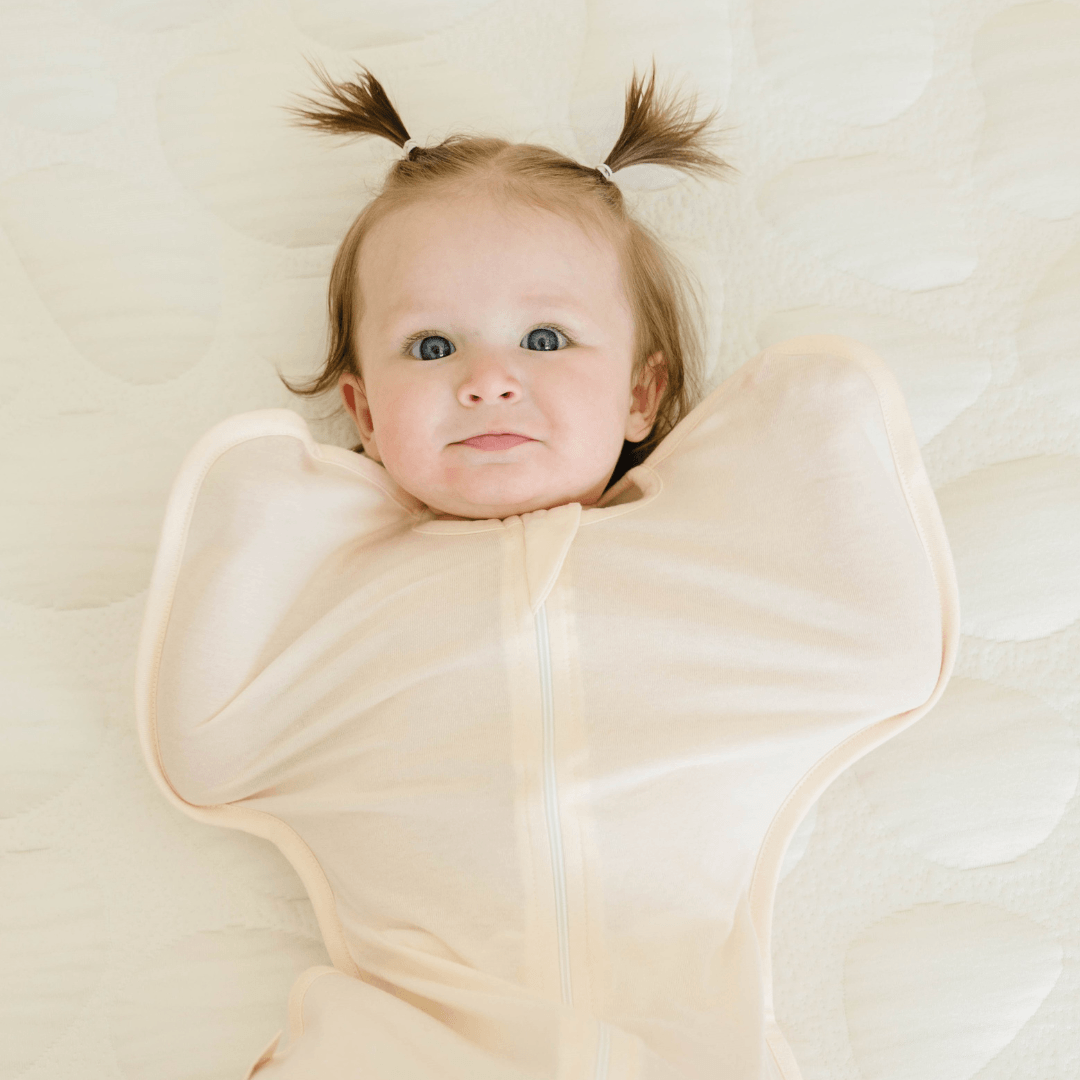From 3 to 6 months of age, how does your baby develop? We have compiled a list of things that your child will learn to do during this time!
Motion Development
- They can control their head.
- They can turn over.
- They can play with their hands and feet.
- If you support their body, they will stand for a while.
- When they stand up, they can bend and straighten their legs and do leg exercises.
- If you pull both their hands up, they can sit up, but they cannot sit by themselves.
- They can move both hands to grab an object.
- They can use their entire palm to grab objects.
▶ IMPORTANT POINT: From 3-6 months, your baby should learn how to constantly and safely lift their head. That means they can start holding their neck properly, although you should always take care to support their neck when carrying or moving them. When lying down, they will start to support their body with their arms. Sometimes they may lie down and then turn over onto their back.
Language Development
- They babble with syllables and intonations.
- They turn their head to the sound of words and make eye contact.
- They pretend to know familiar sounds and respond with gestures.
- They turn their head when their name is called.
- There are different pitches in the babbling they express.
- Their vocalization is a little clearer.
- In addition to crying, they are starting to express emotions through voice patterns (joy, anger, displeasure, satisfaction, etc.).
▶ IMPORTANT POINT: Their social laughter becomes more active and vocalizations become clearer than in the past. They will start babbling.

Cognitive Development
- They can see their own hands and fingers.
- They can shift their gaze from one place to another.
- They explore objects through their mouths.
- They can observe the objects they touch.
- They can turn my head in the direction of a sound.
- They can also respond to sounds coming from a distance or another room.
- They can find partially obscured objects.
- They will start to imitate facial expressions and simple movements.
Social Development
- They show more smiles!
- They begin to differentiate between familiar people and strangers.
- They like to play with other people and may cry when play is interrupted.
What should I do with my child at this time?

1. Hold your child and have a variety of conversations. Don't forget to share bright smiles too!
2. Maintain a steady eating and sleeping pattern in their routine.
3. Respond to and follow the baby’s babbling or sounds.
4. Play with toys suitable for the baby's age, such as a rattle or a colourful touch book.
5. Play peek-a-boo!
6. Place 2-3 safe toys within reach of your baby for them to explore.
---------------------------------------------------
Author: Jisoo Lee, Kindergarten Teacher
- Based on early childhood education theory and practical experience,
she introduces ways to get along with children.







